Gray (Book 3) Read online
Page 14
Edith was cleaning up the mess Coral had left in the treatment room. Coral stooped down to whisper to her, “Don’t throw away the toes. I want to study them later on.”
Edith looked shocked, but she recovered quickly and nodded. “I’ll take everything to the other room.”
“Thanks Edith. You did great.”
She whispered, “I’m glad I didn’t have to do what you did.”
Coral managed a wan smile. She stood and walked to Julie’s head. She wasn’t crying or moaning any more. Her color was okay—a bit pink, so no sign of shock. Her eyes were closed.
Abigail looked over the bed at her and mouthed a word. Coral didn’t catch it, and she shook her head. Abigail tried again, slower, and Coral caught it: “Meditating.” Good. If Julie had any technique in hand that could chase the pain away, good for her. Coral had run out of ways to help her.
Benjamin stood leaning against the door, his knee bent and his boot sole planted against the door. His arms were folded. The very sight of him was a comfort.
Edith made him move a moment later when she carried out the bloody towels. Coral followed her into the other treatment room, carrying a lantern.
In low tones, Edith and she discussed what Julie’s care should be like. “Doesn’t she have anyone, family?” asked Coral. She was surprised no one was here, demanding to see Julie when she had not shown up for supper.
“She had a new boyfriend, but about six, seven weeks ago he didn’t come back from a scavenging trip,” said Edith. “No one knows what happened to him.”
“Poor Julie,” said Coral, and she meant it. Losing someone she cared for, and then losing part of her own body? “I’ll stay here with her tonight. You go home, get some rest, and then you can watch her tomorrow while I sleep.”
“You sure?”
“I don’t want her to be alone for a couple days, so we need to take shifts. We need to change the bandage, watch closely for infection, and try to manage her pain somehow.”
“And keep her warm.”
“Yeah, another reason she needs to stay here.”
“I’ll check our fuel supplies and make sure we have enough to run the stove 24/7,” Edith said.
“Maybe in three or four days, she’ll be out of the woods. I’d like to keep her warm for that long.”
Edith nodded. “How much antibiotic are you going to give her?”
Coral hadn’t thought it through. “Assuming no ill effects, a shot twice a day for four days. And then we’ll see.” If there was any sign of infection, she’d increase the dosage she’d already guessed on. If at day four, Julie was healing, Coral would stop the treatment and try to save what portion of the drug she could for other patients.
Benjamin was waiting in the hall for her. “I’m staying too.”
“There’s nowhere for you to sleep. And our bags, our blankets, they’re back at the apartment.” They had gotten their old sleeping bags and blankets laundered, and Abigail had brought them back to the apartment. They were tucked next to their burlaps sacks, with Coral’s old boots, now repaired, and some other supplies Benjamin had borrowed, begged, or stolen. “You may as well go home.”
“I’ll stay,” he said, and after a closer look at his expression, Coral knew not to argue with him. The three of them returned to the treatment room. Julie was resting, her arm over her forehead.
“We can line some chairs up, make a bed for you in here,” Edith said to Benjamin.
“It’s warm enough in here I don’t need blankets,” Benjamin said. “My jacket will be plenty warm enough.”
“I’ll come back early tomorrow,” Abigail said, “and bring breakfast for you three. Unless you need me here all night?”
“Thank you, but we’ll be okay,” Coral said. “I’ll sleep tomorrow, during the day, back in the apartment. But if there’s another emergency—” and she glanced at Julie “—you have someone come and wake me.”
“It’s a deal,” said Edith and, soon thereafter, she and Abigail left, sharing a dim flashlight taken from a clinic shelf to make their way home.
Benjamin lined up the chairs for a bed and offered it to her, but she shook her head. “I’ll stay up. I want to keep an eye on Julie.”
Her patient had fallen into a fitful doze. The bandaging over her foot was stained with blood, but as Coral examined it in the lamplight, she thought the bleeding had almost stopped. Good. She wanted to leave the wound alone for the next several hours. She’d change the bandage when Edith was here.
Benjamin dozed on the bed of chairs. Coral sat watching Julie breathe. From time to time, she became restless, and Coral held her hand and try to soothe her. In the middle of the night—maybe two or three o’clock, Coral guessed—Julie woke with a moan and could not get back to sleep.
Coral opened the cabinet and took down the pain meds she had at her disposal. There were too few. And Coral, somehow, had become responsible for doling them out correctly among three hundred people. She shook out two more Tylenol with codeine and helped Julie swallow them.
She looked in the bottle, which held only six pills now, and thought seriously about pocketing it. One day, weeks or months from now, she or Benjamin would need pain meds.
Think of it as payment for services rendered.
She couldn’t, though. She could only think of it as theft. Yes, she knew that’s who she was now, a person who would steal some of the last remaining resources of a group who had done her no harm.
But not right this second.
When morning came, she woke Benjamin to keep an eye on the sleeping Julie while she went to use a latrine. She took the bucket of water warming by the stove outside with a cube of local soap to wash her face and hands. It was a nice perk of being the doctor, having warm water to wash in and a whole tray of soap stored at the clinic. This morning, Benjamin shared her perk, using the rest of the warm water.
There was a storage tank for water inside the clinic. A pair of men from a logistics group filled it twice a week at the river and hauled it back. Coral filled the bucket again from that and set it on the stove.
She fed the stove from their woodpile, which was almost all scrap lumber, and not very big pieces of it at that. She mentioned it to Benjamin.
“I’m not sure if fuel or food is going to become the critical problem first here,” he said.
She jerked her head, indicating they should finish the discussion in the hall. “Both are low, then?”
“I don’t really know about the food, but from what I’ve seen, the fuel is dangerously so.”
“What’s going to happen when it runs out?”
“Nothing good,” he said.
“Then we should be well away from here by then, shouldn’t we?”
“They’ll last another week. And they can function longer if there’s a major find out there. That’s not impossible.”
“I’m ready to leave any time you are. Though I’d rather stay the next couple days, while I’m looking out for Julie.”
“We’ll make a plan for when she’s past the worst, then. And there’s more to learn before we have that discussion. I might see something that tells me we should get going that very night. Could you be okay with that?”
She could hand Julie’s care to Edith with no worse than a twinge of guilt. “Yes.”
“Are you getting used to the place?”
“I’m getting used to it in some ways. But I’ve been missing the good old days, you know?”
“Meaning what?”
“With you and me, alone. Like when we were camped at a reservoir. Rabbit stew and fish fillets. Working on my arrows.”
“We can leave any time you like.” He frowned. “But the days of plentiful fish and rabbits might be gone.”
“Especially if you don’t get your rifle back. Hard to shoot game with your finger.”
“I think I know where the rifle might be, but I’d rather not have to break in there. Not unless we’re minutes from needing to run, for whatever reason.”
Coral heard the front door open and said, “We’ll talk about it later.” She hurried up front to see who it was.
It was Abigail, with a steel bucket. “Breakfast for the three of you,” she said, holding it up. “The bucket is clean, Chef promised.” She looked past Coral. “How’s Julie?”
“Hurting, but she slept most of the night.”
“That’s good, right? She doesn’t have a fever?”
“No, no fever.” Without any sort of thermometer, Coral had to take temps Grandma fashion, by feeling the face and neck of her patients. Julie had felt near normal all night. Coral hoped it lasted.
“Did you bring breakfast for yourself, too?” Coral asked.
Benjamin was bringing the waiting room chairs back out as Abigail said, “No, I’m headed back to eat with Doug at the table. And then, can I talk with you back at the apartment before you go to sleep?”
“Sure,” said Coral, though she was feeling bone-tired and in no mood for a friendly chat.
Abigail left, and Benjamin and Coral sat to share a few cups of porridge with tiny cubes of Spam or some other processed salty meat. The chef had been generous with their three servings, and when she was done eating, there was still plenty for Julie, and she felt full for the first time in a long while.
Keeping his voice low, Benjamin said, “I have to get to my work assignment.”
“Did you have enough sleep?”
“Yeah, you’re the one that was awake all night.” He pulled her in for a hug. “You did great in there, with the surgery. I’m proud of you.”
When he turned to leave, she was surprised to find herself teary-eyed at the praise. She was tired though, and the stress of the previous night still weighed heavily on her.
Edith showed up early, and Coral was happy to turn Julie’s care over to her. Edith promised to make Julie eat breakfast when she woke, and Coral said she’d bring dinner for Julie along when she came to relieve Edith for the night shift.
The daylight outside seemed brighter—or more glaring—as she walked to the apartment building. She stumbled on a step at the entrance and barely caught herself in time. Sleep would be welcome.
But when she got into the apartment, there was Abigail, waiting for her. She’d said she wanted to talk. Coral managed a smile as she sat in the living room across from her. Light was coming in a window where Abigail had pulled the heavy drapery back. The apartment seemed even colder after the heat of the clinic all night.
Abigail looked worried. She had frown lines between her eyes, and she was rubbing her own thighs, a hard, nervous gesture.
“Is there something wrong?” Coral asked. It occurred to her that maybe Abigail wanted her and Benjamin to move out but was nervous about saying so. After a minute of Abigail opening and shutting her mouth, not able to get a start on what she wanted to say, Coral was about ready to ask if that was the problem and reassure her there were plenty of other places for them to sleep. When Abigail did speak, she surprised Coral.
“I think I’m pregnant,” she said. And then she began to leak slow tears. “I’m two weeks late.”
Chapter 20
“Do you have other symptoms? Nausea? Breast tenderness?” Coral had known about pregnancy symptoms long before schooling or her stint as a hospital volunteer. She had a friend who had been pregnant at fifteen and gotten an abortion. Coral had gone along to the clinic for moral support, and during the 90-minute wait, she’d read every pamphlet in the building and left knowing more about pregnancy and birth control than most people her age.
“No. I’m crazy hungry, though. And I haven’t had my period.”
“I haven’t had one in months,” said Coral. “It’s the lack of food.”
“I hope that’s all it is,” Abigail said. “But I get this feeling like I am.”
“You’ve been having unprotected sex?”
“No, we have the condoms. You know, they must have given Benjamin his. Married men get two, single men one.”
“I—” Coral didn’t know what to say to that. Of course had she and Benjamin really been married, she would have known this. She wished he had told her. On second thought, she could see why he had not. “Did yours break, or…?”
“No. We wash them out, let them dry totally, like you’re supposed to, alternate them. I even check for little holes every morning.”
So they must have had a limited supply of condoms, found during scavenging. With no likelihood of finding more, the logical thing to do would be to reuse them, no matter that in the old world, that would have been considered a crazy risk. “You’re two weeks late, you said?”
“I can’t have a baby,” Abigail said, and her voice broke. “There isn’t food for a baby.”
She was right about that. A pregnant woman, a breast-feeding mother, should have three thousand calories or so, in ideal conditions. Soon, Abigail would be eating barely a third of that, the way things were headed.
“There’s no allowance made for that here? Like a double food ration for pregnant women?”
“No. It was agreed months ago, no new babies. Not until we have more of a handle on things.”
They were headed the wrong direction down that road, losing their grip, even if they couldn’t see it. Their walls might still be standing. People might go to their jobs in an orderly way. But when the food was halved and then ran out entirely, everything would fall to pieces here. Coral had no idea what to say to Abigail. “Do you want the baby?”
Abigail shook her head. “No. I mean, a year ago, if it had happened then, I’d have adjusted to the idea and probably gone ahead, but not now.”
The pieces finally fell into place. “You want me to give you an abortion.”
Abigail nodded. “Please.” And she buried her face in her hands and wept.
Coral crossed the room and stood behind Abigail, patting her on the shoulder, making comforting sounds, until the crying fit trailed off.
“I didn’t even want to tell you,” said Abigail, “but when I saw you operate on Julie. I knew you could do it. You keep saying you’re not really a doctor, but you are. You’re good.”
Coral squatted in front of Abigail, taking her hands. “I don’t have any experience at it,” she said. “Worse, I don’t have any equipment.” Pre-Event, there were sterilized instruments used to ease open the entrance to the uterus, and then tubing, and a vacuum device which ran on electricity. Without that, she’d be reduced to—what? Moving around some random object up there, hoping to detach the fetus without damaging Abigail?
No way. It was bad enough cutting off Julie’s toes in bright lamplight, with a sharp scalpel and three assistants. Working blind inside someone, by feel, hoping for the best? There was no chance at all that she’d be able to do that.
“You’re all there is,” said Abigail.
Maybe Edith could do it. “You might not be pregnant,” she said. “Maybe you’re late, or underfed, or stressed out.”
“I have a feeling I am. I feel…” Abigail slowly shook her head. “Different. I don’t want to sound crazy, but it’s like I know I’m inhabited. That I’m sharing space with something else. Someone else.”
Coral had no response to that. She’d never been pregnant, never had a scare, even. Maybe women did have a sense of the fetus inside them. “And you’re okay with this? I mean, you don’t have religious or moral problems with terminating the pregnancy?”
“Not religious, no. I just wish it were different.” The tears started again. “I wish we weren’t in this situation. Doug and I always wanted…. Some day.” She pulled her hands free and covered her face again as she sobbed.
Coral sat on the floor and kept her hand in contact with Abigail’s leg, to let her know she wasn’t alone. Though she was alone, in a very profound sense. When the sobs trailed off again she said, “You haven’t told Doug?”
“No,” said Abigail.
“Maybe you should.”
“No,” Abigail said, more forcefully. “There’s no reason to upset him,
too. He’d feel bad.” She sniffed and straightened her back. “I’ll deal with it alone. If you’ll help, I can get through this.”
Coral nodded, though she wasn’t agreeing to anything, simply indicating she was listening. “I think we should wait another week and see if something else happens.”
“Why not now?”
This answer she knew, again from the abortion clinic pamphlets. “An embryo is too tiny in the first couple weeks. Even before the Event, with all the right tech in place, they were still afraid of missing it, so they wanted people to be between four and eight weeks pregnant to do an abortion.” Did that apply to miscarriages? Maybe not. “Also, if we wait a week, that’ll give me a chance to do some research.”
“About—about doing the abortion?”
“I was thinking about ways to trigger a miscarriage. It might be safer if we could nudge your body toward ending the pregnancy on its own. Before surgical abortions, women did things, I’m sure.” She patted Abigail’s knee and stood. “I want to find out what those things were, and which would be safest.”
“Oh. Okay. Will it hurt, do you think?”
Less than me accidentally tearing through your uterus with a soup spoon, I’d think. “I don’t see any way around having cramps if you miscarry.”
“No, I guess not.”
“I wish you’d tell Doug.” When Abigail shook her head, Coral put up a hand. “I’m thinking about the books. He knows where the books are, the ones they’ve saved, and which are which. That’s where we may find the info about miscarrying.”
“He’s a great researcher.”
“So he could find this information, right?”
“Oh, please don’t tell him. I don’t want him to guess it’s me you’re asking about.”
“Maybe what I can ask,” Coral said, thinking it through as she spoke, “is for all sorts of old medical information. And I won’t ask Doug but Levi, if he’d be willing to put someone to work looking up home remedies. I’ll give him a list of conditions I’m worried about and hope to find information about. Infection, frostbite, hypothermia. Pregnancy will just be one on a list of a dozen.” She had a new thought. “Or maybe I could ask for a town hall meeting, and ask everyone if they remember any home remedies, things their grandmothers use to say or anything they’ve read in an old book.”

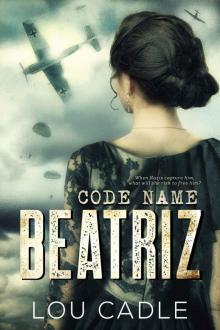 Code Name- Beatriz
Code Name- Beatriz Oil Apocalypse Collection
Oil Apocalypse Collection A Dawn of Mammals Collection
A Dawn of Mammals Collection Killer Pack (Dawn of Mammals Book 4)
Killer Pack (Dawn of Mammals Book 4) Bled Dry
Bled Dry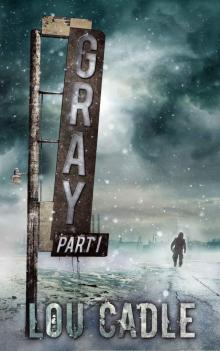 Gray (Book 1)
Gray (Book 1) Dawn of Mammals (Book 4): Killer Pack
Dawn of Mammals (Book 4): Killer Pack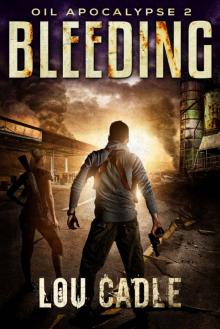 Bleeding (Oil Apocalypse Book 2)
Bleeding (Oil Apocalypse Book 2) Dawn of Mammals (Book 5): Mammoth
Dawn of Mammals (Book 5): Mammoth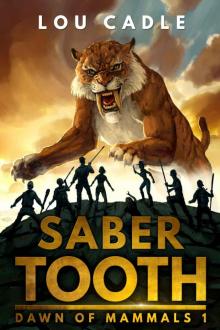 Saber Tooth (Dawn of Mammals Book 1)
Saber Tooth (Dawn of Mammals Book 1)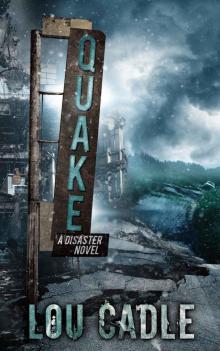 Natural Disaster (Book 2): Quake
Natural Disaster (Book 2): Quake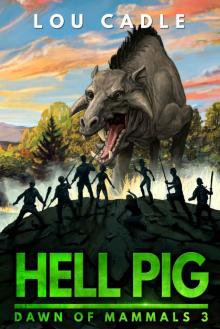 Hell Pig (Dawn of Mammals Book 3)
Hell Pig (Dawn of Mammals Book 3) Bled Dry (Oil Apocalypse Book 3)
Bled Dry (Oil Apocalypse Book 3)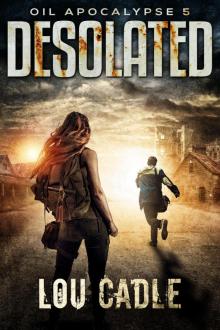 Desolated
Desolated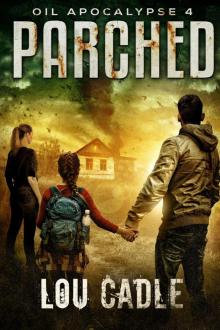 Parched
Parched Natural Disaster (Book 3): Storm
Natural Disaster (Book 3): Storm Natural Disaster (Book 1): Erupt
Natural Disaster (Book 1): Erupt Slashed (Oil Apocalypse Book 1)
Slashed (Oil Apocalypse Book 1) Mammoth (Dawn of Mammals Book 5)
Mammoth (Dawn of Mammals Book 5)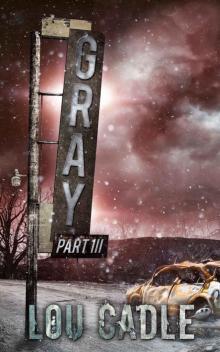 Gray (Book 3)
Gray (Book 3)